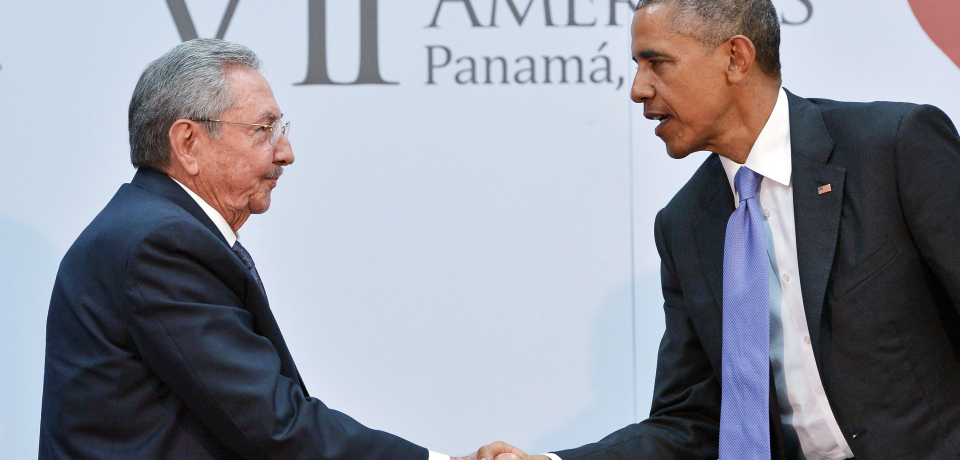
Congress won’t block Obama from delisting Cuba on terror list
In a major victory for the White House, the Republican-controlled Congress will not advance a bill designed to block President Barack Obama’s executive action removing Cuba from the state sponsor of terrorism list.
The Republicans aren’t backing down because Obama made a particularly persuasive case to normalize ties with the communist island after a half-century of isolation, but for reasons much more practical: Legally, Congress can’t prevent the executive branch from taking Cuba off the list, according to Republicans.
“We can’t undo it,” Rep. Ileana Ros-Lehtinen (R-Fla.) told Foreign Policy in an interview on Wednesday, April 22. “We just got the word from the parliamentarian: It’s a no-go.”
Ros-Lehtinen had won the support of 35 co-sponsors on draft legislation designed to block Obama’s Cuba move and planned to introduce the bill this week. Officials at the State Department and White House — already bracing to fight Capitol Hill over funding for a U.S. embassy in Havana — were also anticipating a major fight with Congress over the delisting legislation.
“Everybody kind of thought Congress could do this,” said a congressional aide. “It would’ve meant weeks of markups and hearings in the House and Senate dedicated to bashing Obama’s Cuba policy. This staves off a major headache for the administration.”
According to Ros-Lehtinen, the confusion over Congress’s authority stemmed from a misunderstanding of the Helms-Burton Act, the federal law passed in 1996 extending and strengthening the U.S. embargo of Cuba.
“When we wrote it, we put the embargo in the legislation so the embargo can only be lifted by an act of Congress,” she said. “But we didn’t even think of the listing of the state sponsor of terrorism because it wasn’t talked about much, so there was no fanfare about it.”
“We can’t legislatively remove them,” she added.
Last week, Obama made a formal recommendation to Congress to remove Cuba from the list, which also includes traditional adversaries of the United States such as Iran and Syria, putting in motion a 45-day review process by Congress. It was widely reported that lawmakers could then take steps toblock the move during the review period — setting up a confrontation between the two branches.
Removal of the terrorism designation is a major step in the White House’s bid to normalize relations with Cuba; the certification had been a major obstacle in efforts to bring the two sides closer together.
Removing Cuba from the list would eliminate some sanctions on the country, such as restrictions on U.S. foreign assistance and a ban on defense exports to the country.
Ros-Lehtinen said she plans to introduce in the coming weeks legislation aimed at slamming the brakes on Obama’s Cuba policy, but it would not deal with the delisting of Cuba from the terrorism list “because we can’t undo it,” she said.
“Even if we were to pass it … it would be a Pyrrhic victory,” she added.
She declined to provide any further details about her future legislation.
(From: FP)


